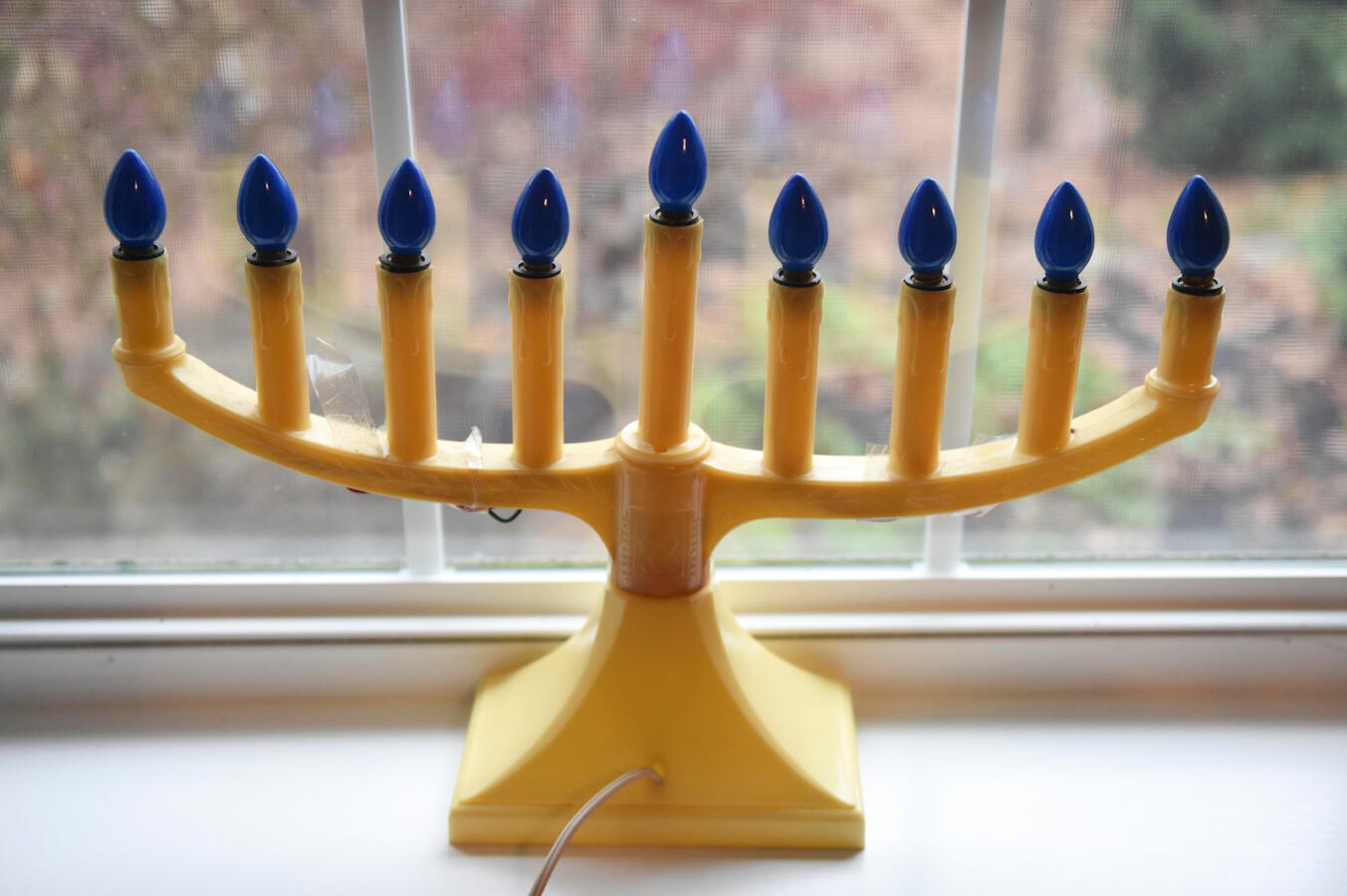Lighting the menorah is the core ritual of the eight-day holiday of Hanukkah. The most common method of doing so involves wax candles, though some prefer to use oil lamps, since that was the method used in kindling the menorah in the ancient Temple.
But what about electric menorahs: Are they OK to use instead?
There is no question that using oil candles is preferred. Since the purpose of lighting the menorah is to publicize the miracle in which a jar of oil sufficient to burn for one day actually burned for eight in the ancient Temple, lighting a flame in a similar manner is considered ideal. This is why some people prefer to use oil menorahs instead of wax candles, which are more similar to the ancient practice. And it’s why of all the oils that could be used, olive oil is preferred among those, because that was the oil used in the Temple.
But that’s about preference. Can you use an electric menorah if you want or need?
With your help, My Jewish Learning can provide endless opportunities for learning, connection and discovery.
On first glance, it would seem so. The Shulchan Aruch, the premier medieval code of Jewish law, specifies that kindling the Hanukkah lights is essential to the mitzvah. One could argue that an electric menorah is certainly a type of kindling — particularly if it contains an incandescent bulb that emits light by heating a filament until it glows. Such lights are considered a type of burning — this is the reason most Jewish law authorities prohibit using them on Shabbat, when burning a fire is forbidden — so using them for electric menorahs would seem to suffice for kindling the Hanukkah flame. From the perspective of Jewish law, LED and fluorescent lights, which work by running electricity through gas or a diode, are more problematic.
The Shulchan Aruch is also clear that “all oils and wicks are fit for use for the Hanukkah lights.” The specification of oils and wicks would seem to preclude alternative methods of illumination, but since oils and wicks were the way people illuminated everything when the Shulchan Aruch was written, some authorities reason that the text was really saying any form of illumination will do.
Finally, the rabbis of the Talmud stipulated that a central purpose of lighting a Hanukkah menorah is pirsumei nisa — publicizing the miracle of the holiday. Some rabbis have suggested that using incandescent lights wouldn’t suffice for this purpose since people might confuse them with regular lighting. But if one is using an electric menorah built for this purpose, and the menorah is placed in a window or other publicly visible spot as is customary, it would seem that an electric menorah surely does the job of publicizing the miracle.
But the vast majority of Jews nevertheless use candles or oil, and in the Orthodox community electric menorahs are virtually unheard of. There are a number of reasons for this. Some are technical: For example, the Shulchan Aruch states that one is supposed to have all the fuel required to burn the menorah flame for the necessary amount of time (generally understood to be 30 minutes) present at the time of kindling. Since no fuel is present at all with electric lighting — the electricity is generated on demand and continues indefinitely — some authorities conclude that an electric menorah does not fulfill the mitzvah of lighting Hanukkah candles, though in theory a battery-powered menorah would not run afoul of this problem.
But the main concern is one of feeling. The differences between electric lights and the miracle Hannukah commemorates are too vast. Electric lights have no wicks, no flames, no fuel, and do not constitute fire in a real sense. For many Jews, flicking a switch on an electric candelabra just isn’t the same.
For these reasons and others, wax candles or oil flames are the norm, though some synagogues may light an electric menorah as a symbolic gesture — not as a substitute. A tiny number of Orthodox authorities have suggested that incandescent bulbs might minimally fulfill the requirement of lighting the menorah, especially if no traditional menorahs are available or if there is a genuine safety concern, but this is not a common practice.
If there is a concern for safety, or if no oil or wax lights can be secured, most rabbis would say it’s better to light an electric menorah than none at all — though some would advise not to recite a blessing. In hospitals, office buildings, nursing homes and other such settings, electric menorahs are a common sight during Hanukkah and serve to publicize the miracle just as effectively as a fire menorah would — and arguably better, as the light never extinguishes.



